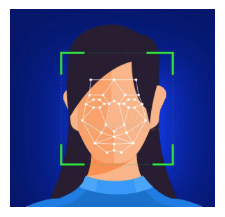Core Principles of Data Protection
And the rights of individuals
The data collected must be adequate, relevant and limited to what is needed
Data should be accurate, and where necessary, kept up to date
Data is kept no longer than necessary for the processing
Tips on boosting your children’s homework productivity
The dreaded Homework battle... Homework, the dreaded word that most students hate to hear. Most students find it difficult to find the motivation to do homework, often leading to rushing it to get it done. Homework is a vital feature of education as it helps to...
All you need to know about data breaches
All you need to know about data breaches... The ICO states that “a personal data breach means a breach of security leading to the accidental or unlawful destruction, loss, alteration, unauthorised disclosure of, or access to, personal data. This includes breaches that...
Use of facial recognition in schools. DPIA’s are essential.
Facial Recognition - DPIA's are essential North Ayrshire council was criticised for attempting to introduce facial recognition technology so that pupils can pay for school meals in an attempt to speed up service and to reduce the risk of spreading Covid-19 via pin...




